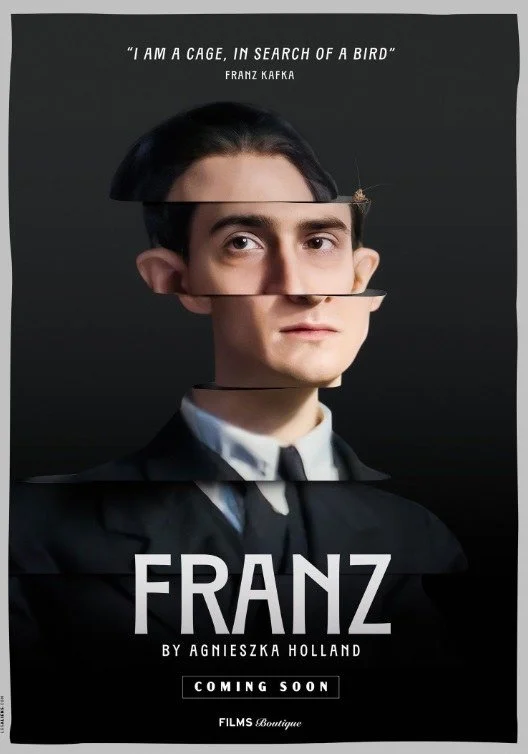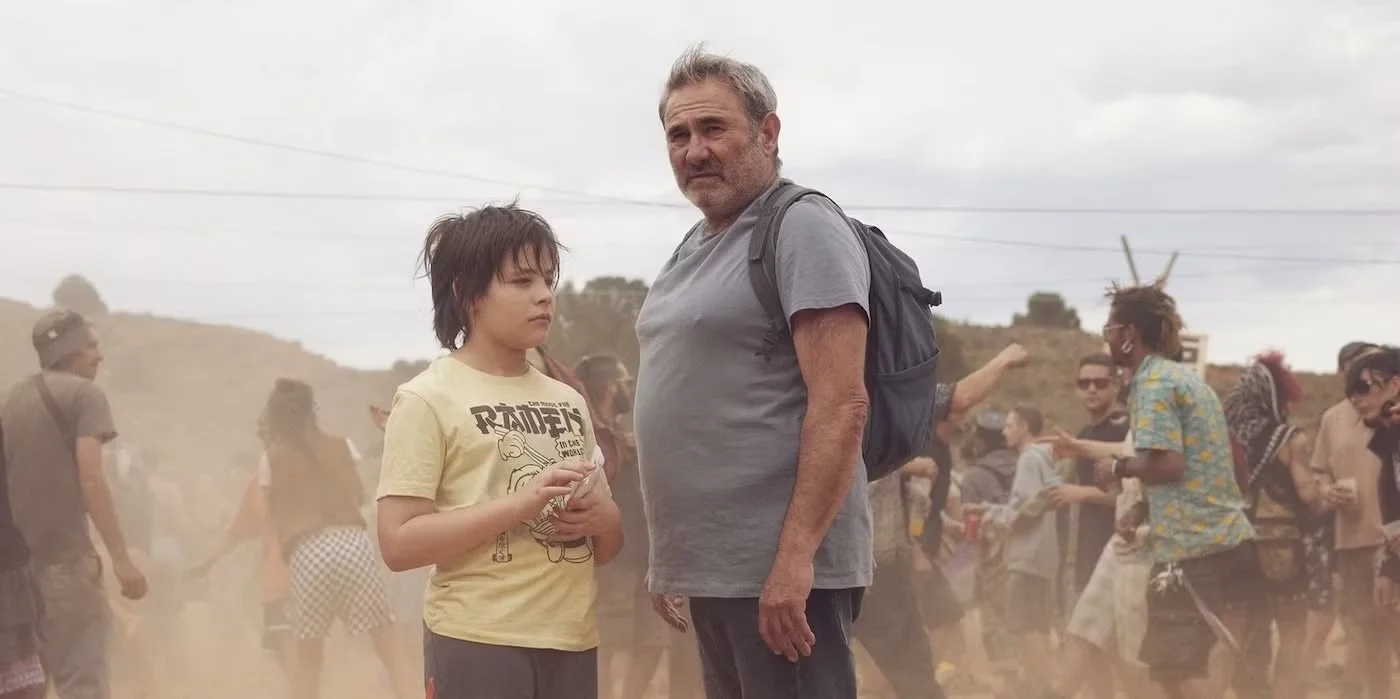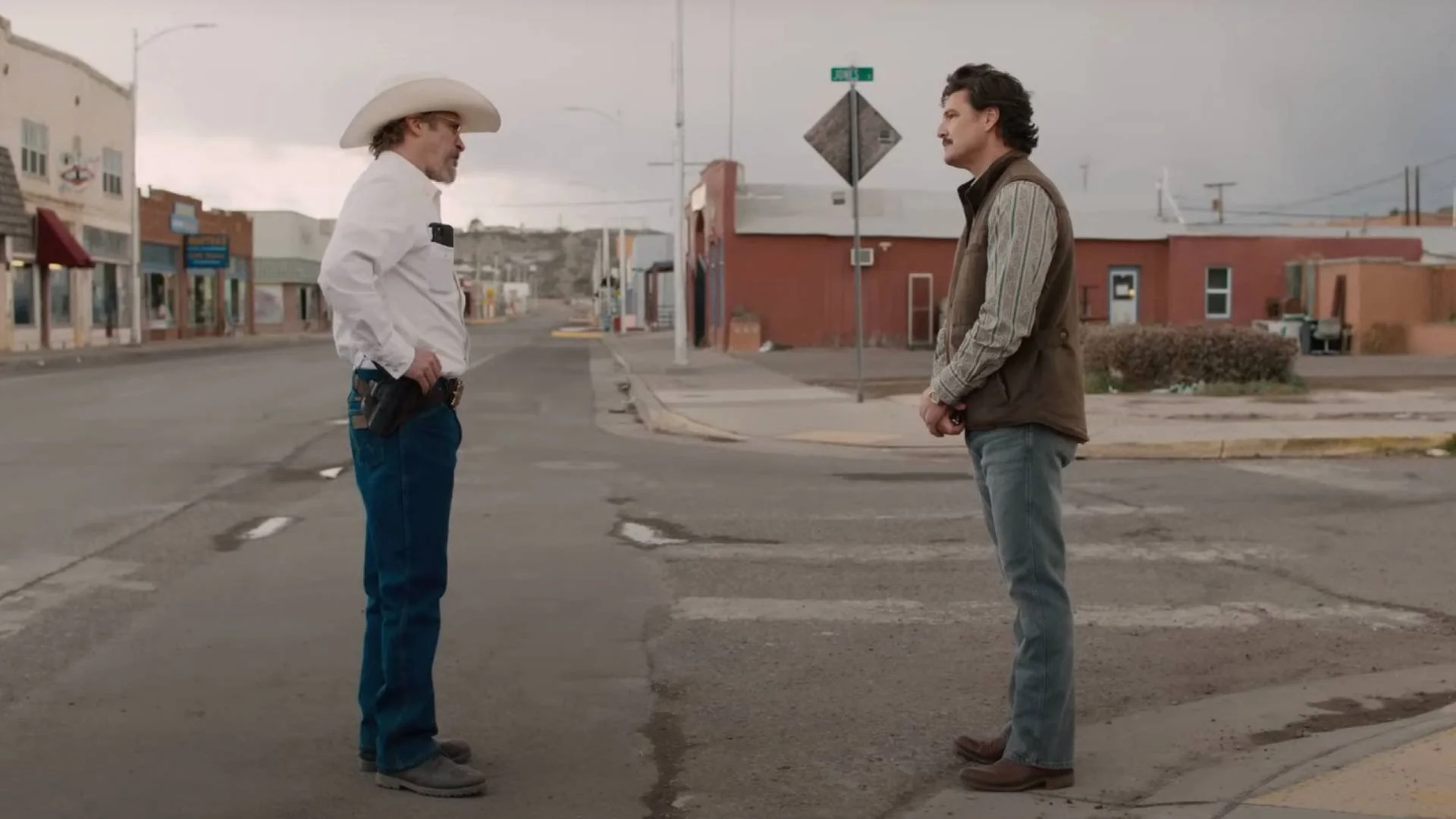Franz
About everything and nothing at the same time.
How do you even approach a biopic of someone like Franz Kafka? A man whose work was barely understood during his lifetime and, arguably, is still not fully understood today. A Kafka biopic could have represented any fragment of his legacy: existential crisis, absurdity, alienation, surrealism, guilt, the crushing weight of bureaucracy, or the incomprehensible difficulties of human relationships. Somehow, Agnieszka Holland managed to do none of that.
Perhaps the fact that she refused to infuse her film with any particular dimension of Kafka’s work or personality worked in her favor, freeing her from being trapped in one framework or one perspective. On the other hand, though, what we get is a film that at times feels like a frame-by-frame adaptation of a Wikipedia page. Watching it, you go through a very standardized, almost automatic retelling of a famous person’s life. But not at every frame.
To be fair, I am only superficially familiar with Kafka’s work, so I cannot judge whether deeper references are hidden within the film. As an entry-level biopic, however, Franz is a perfectly fine effort. The film circles around the contradictions of its subject, touching on the main points of his life while occasionally opening a window into his private moments, struggles, and the way his story takes shape.
Yet the short life of Franz Kafka somehow becomes a very long movie, one that occasionally overstays its welcome. Yes, there are amusing parallels with the modern-day tourist culture around Kafka—the visitors to his Prague museum, the selfies at his old haunts, even the ridiculous “Kafka burgers” sold in his name. Kafka himself would likely have had a heart attack at such trivialization before reaching forty. While these moments are funny, they add little to the film’s narrative. Perhaps that is the absurdism of our own age, where we destroy culture by commodifying it. But as far as the Kafka we watch on screen is concerned, such scenes hardly matter.
The film touches on but never fully dives into the big themes—Kafka’s abusive relationship with his father, his inability to form stable human connections, his tendency to idealize fantasies, and his life lived within a closed, fragile inner world. It rushes through these ideas but seems afraid to dive in. Even with unconventional touches—breaking the fourth wall, modern-day flashbacks—the movie still leaves you wanting more.
Idan Weiss gives a gentle performance as Kafka, and Holland deserves respect for daring to take on such a daunting subject, crafting something audiences might not expect when they sit down in the theater. While the film doesn’t deliver everything I personally wished for, it’s worth watching if only to form your own opinion—whatever radical shape that opinion might take. In this sense, there is a certain romanticism to it: just as Kafka’s work allows for endless interpretations and disagreements, so does this film.
6/10




